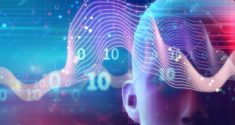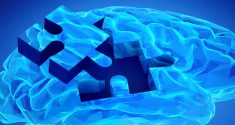The late-night pre-exam study sessions that have long been a part of the academic experience of high school and college students might get students through an exam, but they may not be helpful for actually learning material. According to a recent study conducted by a team of researchers from Brown University and Japan’s RIKEN Center for Brain Science and published in the Journal of Neuroscience, sleep plays a vital role in the cognitive processes associated with learning. Confirming the results of prior studies, this new study found that learning after sleep improves the processing of knowledge as well as information consolidation.
What Researchers Have Discovered About Learning After Sleep
 While prior research offered compelling evidence concerning the benefits of sleep, in relation to learning, the mechanics involved were less clear. This recent study was successful in providing a deeper understanding of those mechanics, shedding light on how sleep impacts the cognitive processes involved. These processes include, but are not limited to, acquisition or the obtaining of new information, consolidation or the setting of the memory of that new information in the mind, and recall, which refers to being able to recall or access that stored information.
While prior research offered compelling evidence concerning the benefits of sleep, in relation to learning, the mechanics involved were less clear. This recent study was successful in providing a deeper understanding of those mechanics, shedding light on how sleep impacts the cognitive processes involved. These processes include, but are not limited to, acquisition or the obtaining of new information, consolidation or the setting of the memory of that new information in the mind, and recall, which refers to being able to recall or access that stored information.
As explained by Brown University’s Neuroscience Graduate Program professor of psychological, cognitive and linguistic sciences Dr. Yuka Sasaki, who also served as the lead study author on this research project, the researchers compared two theoretical models of how sleep specifically impacts learning. These were referred to as the user-dependent model and the learning-dependent model.
In the first, the efficiency of processes that take place during sleep, such as consolidation, rely upon how efficiently the brain is functioning while a person is awake. In the learning-dependent model, there are specific learning-related neural processes that take place during specific stages of sleep, such as the memory consolidation processes that have been found to take place during rapid eye movement (REM) sleep.
In comparing the two theoretical models, the researchers set up two groups, both of which included males and females. The learning the study subjects engaged in was a texture discrimination task. The first group of subjects were tested before receiving training for the study learning task, then they received task-specific training. They were tested after the training and then they took a 1 ½ hour nap, after which they were tested again for information retention. For the second group, the set up was a bit different, designed to interfere with the learning process. That group did receive the training for the task, as well as testing before and after their 90-minute nap.
The results of the study, according to the researchers, demonstrated that the learning-dependent model was the more accurate description of the mechanics involved in the cognitive processes of learning. During sleep, there are specific learning-related neural processes that take place, meaning that sleep has a specific and essential role in the consolidation, or organizing and storing, of new information in the brain.
While the researchers do note further research is required, particularly in the realm of more specific types of learning as opposed to more general types of learning, Dr. Sasaki was able to offer practical learning enhancing real world applications for the results of their study.
Practical Use of Study Results for Better Learning
As a professor, it’s not surprising that Dr. Sasaki saw the impact that the results of this study could have on students if it were applied to the way a student’s day was structured. She suggested that adjusting school hours to promote better sleep for students could potentially enhance their learning. In this context, it is interesting to note that adolescents do tend to operate on a later sleep-wake cycle due to the changes to their circadian rhythm associated with puberty.

Consider Sleep to Be Essential to Learning
Whether you are a student or otherwise engaged actively in learning or are responsible for a student, remember to treat proper sleep as the essential part of learning that it is. While extra-curricular and social activities do have importance, they must be balanced with core learning, knowledge-processing and memory goals as well as with sufficient time for proper sleep on a nightly basis.
Naturally, this advice isn’t just for students. We all engage in learning, whether it be on the job or just in our daily lives, and can all benefit from optimal cognitive functioning, including memory and learning.







